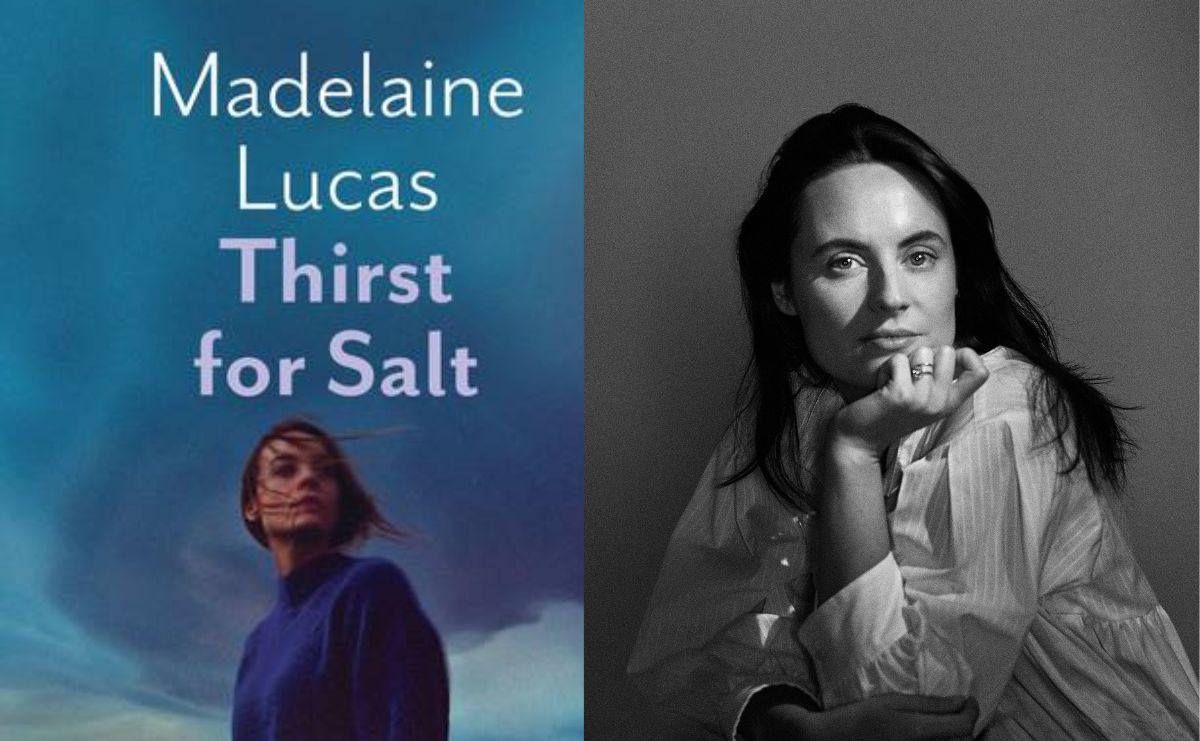Madelaine Lucas’ debut literary novel, Thirst for Salt, is told from the perspective of an unnamed young woman who, upon seeing a photograph of a man from her past – Jude, an ex-partner pictured with his young daughter – reflects on the time she spent with him as a 24-year-old, when he was 42. While their relationship lasted only a year, there was nothing fleeting or easily containable about her experience of loving Jude. Her love for him gathered quickly and never entirely recedes.
Going back in time, she first meets Jude while she’s with her mother, browsing his old wares shop in a coastal town. Her mother later observes that he’s ‘too young for me, too old for you’ and, for our narrator, these words say more than was perhaps intentional. To even entertain the possibility of having him is not something she wants to share.
Jude is slow and solitary; his life at Sailor’s Beach, ambitionless and undisrupted, feels seductive. And having grown up without a stable, dependable father figure, she opens herself to Jude’s paternal energy and also to the possibility that this ‘orphan boy belonging to no one’ could maybe, one day, belong to her. In fact, she makes herself entirely available to him. Consumed with love, she leaves behind the city, her bookselling job, her friends and her dreams to go overseas, and packs her life into Jude’s cabin by the beach.
The protagonist shares her story years after the events in question, and this vantage gives her reflective voice an assured and grounded quality. We trust in her unhurriedness, the time she is taking to show us things, and her animating observance of sensory and sensual details – her memories register as live, immediate and fully formed.
Early on in their relationship, Jude remarks that ‘love erases’. He means this as an assurance that every time you fall in love it’s like the first time. But when it comes to it, our protagonist has a different way of leaving love behind. She understands how love remains, and both haunts and inspires reflection. Thirst for Salt explores the particular kinds of marks that experiences leave on women.
It is also a story about imbalances. For all this, though, Thirst for Salt is compassionate; Lucas’ ambition is to understand all her characters. Jude’s limitations and (in)actions are not excused, but they are supported by clues as to why he is the way he is. His tendency to withhold means that the facts about his life are scarce and drip fed. But these are abysses into which the protagonist intuitively stares. When Jude says, ‘If you can’t stay, that’s too bad, but don’t demur because you like to hear me asking’, she observes that he’s ‘so wounded. Like a kicked dog’.
Appropriately enough, later in the book, a real dog finds them. King is what they call him, and he serves as glue for their relationship, an emotional intermediary. Jude, unable to directly express his feelings, reveals his wishes for the protagonist to live with him, to stay, by describing them as King’s desires. Our protagonist has no issue embodying her emotions, and so, where Jude ventriloquises, she divines.
But King is no mere symbol, he is legitimately affected by how the relationship fares. When the protagonist observes Jude with another woman on the beach, she goes into flight mode and forgets to take King with her when she leaves. Left outside and behind, he runs away. He isn’t missing for long, just as their relationship is not yet done, but that event changes things.
The choice to leave the protagonist unnamed is clever. Thirst for Salt feels like a “real person” accounting their experiences. It’s as if she is sharing her private memoir with us, and why would a writer’s name appear in their own personal notebooks? With a less masterful touch I may have felt like a voyeur, but instead I feel privileged to have been confided in.
Read: Book review: The Crying Room, Gretchen Shirm
At the story’s end, the protagonist is older, but still a young woman. Love has not erased; things have been lost. Certain people and experiences are closed to her, perhaps motherhood is not in her future. But her capacity to nurture the connections she does have in her life, as with her mother, her younger brother and writing career, is nourished and feels assured. She gives so much of herself to this story, and it feels fitting that she should keep something of herself – her name – private.
Thirst for Salt, Madelaine Lucas
Publisher: Allen and Unwin
ISBN: 9781761066931
Paperback: 336pp
RRP: $32.99
Published: 4 April 2023






